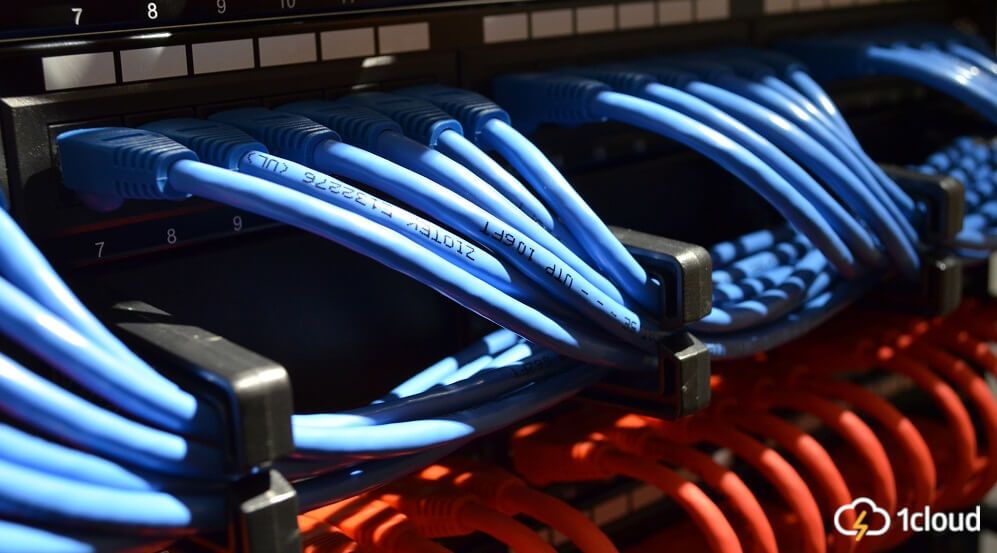The US government is discussing the possibility of regaining control of the IANA [but this is unlikely]
In early June, the Federal Register official journal of the US Federal Government, which contains proposals from government agencies and public communications, appeared in the National Telecommunications and Information Administration (NTIA).
It contains the question: Did the United States government must regain control of the execution of functions IANA management of IP-address, and top-level domains.
Next, let's talk about where this idea came from.

/ Flickr / Kev / CC
Initially, the IANA functions were performed by the US National Telecommunications and Information Administration , or NTIA (National Telecommunications and Information Administration). It deals with communications policy in America. Responsibility for managing the space of top-level domains, IP addresses and other Internet protocols rested with the NTIA, since it concluded a contract with ICANN.
However, the contractual conditions created an imbalance in the management of the Internet; therefore, 20 years ago, in 1998, the world community started workingover the transfer of the management of the DNS address space to the private sector. The US government has agreed that this will allow better adaptation to the high speed of network development and will contribute to the promotion of the idea of an open Internet. The privatization procedure was initiated by ICANN itself.
The final stage of this process began in 2014, when the representatives of the NTIA asked ICANN to create a community of politicians, representatives of private companies, technical experts and ordinary Internet users. Its participants were to form a new model for managing the global network.
Convinced of the viability of the proposed model, in the fall of 2016 (when the contract expired), NTIA transferred the right to exercise the IANA functions to the ICANN internal unit. It includesrepresentatives of all countries, as well as technical specialists, experts from the Internet industry and network users.
Thus, the US authorities voluntarily handed over the opportunity to influence the domain zones to the world community.
On June 5, NTIA published in the Federal Register a written request to all those who are not indifferent to the organization’s Internet policy for 2018 and subsequent years.
The request contained the question: “Is it worth returning control of IANA into the hands of the government? If so, why and how? If not, why not? ”( P.3, section II, clause D ). The organization wanted feedback and comments from all interested parties.
The fact is that individual members of the government are thinking again about a return to control. In particular, Senator Ted Cruz. One of the reasons why this question was raised at all is the series of failures of ICANNassociated with attempts to bring the principles of the Whois service in accordance with the requirements of the GDPR. At the same time, Ted Cruz believes that the loss of control over the IANA has undermined the status of the United States.
So the question about returning IANA “under the wing” of the government was asked publicly. The goal is to get community feedback and explore the proposed ways to implement this initiative.

/ Flickr / perzon seo / CC
However, many industry representatives were skeptical about the decision. Even the head of NTIA, David Redl (David Redl), said that he personally considers this task impracticable.
At the same time, David Redl nevertheless noted that the NTIA was concerned about the situation around ICANN and Whois (we wrote about it in ourmaterials in the blog). Redl argues that NTIA will continue to insist on retaining all Whois functions that are valuable to Internet users.
Although ICANN has been repeatedly criticized for acting on Whois, it’s hard to imagine that the US government would seriously consider reversing its decision and “returning” IANA. The Register suggests that such a move may cause disapproval from the world community, as well as lead to the fragmentation of the global network addressing system.
Therefore, it is likely that the status quo will remain: NTIA will continue to serve as presidential adviser in the telecommunications industry and Internet technologies, IANA will still be responsible for managing the DNS root zone, and ICANN will monitor IANA activities.
It contains the question: Did the United States government must regain control of the execution of functions IANA management of IP-address, and top-level domains.
Next, let's talk about where this idea came from.

/ Flickr / Kev / CC
IANA Transfer
Initially, the IANA functions were performed by the US National Telecommunications and Information Administration , or NTIA (National Telecommunications and Information Administration). It deals with communications policy in America. Responsibility for managing the space of top-level domains, IP addresses and other Internet protocols rested with the NTIA, since it concluded a contract with ICANN.
However, the contractual conditions created an imbalance in the management of the Internet; therefore, 20 years ago, in 1998, the world community started workingover the transfer of the management of the DNS address space to the private sector. The US government has agreed that this will allow better adaptation to the high speed of network development and will contribute to the promotion of the idea of an open Internet. The privatization procedure was initiated by ICANN itself.
The final stage of this process began in 2014, when the representatives of the NTIA asked ICANN to create a community of politicians, representatives of private companies, technical experts and ordinary Internet users. Its participants were to form a new model for managing the global network.
Convinced of the viability of the proposed model, in the fall of 2016 (when the contract expired), NTIA transferred the right to exercise the IANA functions to the ICANN internal unit. It includesrepresentatives of all countries, as well as technical specialists, experts from the Internet industry and network users.
Thus, the US authorities voluntarily handed over the opportunity to influence the domain zones to the world community.
Why did they return to this question again?
On June 5, NTIA published in the Federal Register a written request to all those who are not indifferent to the organization’s Internet policy for 2018 and subsequent years.
The request contained the question: “Is it worth returning control of IANA into the hands of the government? If so, why and how? If not, why not? ”( P.3, section II, clause D ). The organization wanted feedback and comments from all interested parties.
The fact is that individual members of the government are thinking again about a return to control. In particular, Senator Ted Cruz. One of the reasons why this question was raised at all is the series of failures of ICANNassociated with attempts to bring the principles of the Whois service in accordance with the requirements of the GDPR. At the same time, Ted Cruz believes that the loss of control over the IANA has undermined the status of the United States.
So the question about returning IANA “under the wing” of the government was asked publicly. The goal is to get community feedback and explore the proposed ways to implement this initiative.

/ Flickr / perzon seo / CC
However, many industry representatives were skeptical about the decision. Even the head of NTIA, David Redl (David Redl), said that he personally considers this task impracticable.
At the same time, David Redl nevertheless noted that the NTIA was concerned about the situation around ICANN and Whois (we wrote about it in ourmaterials in the blog). Redl argues that NTIA will continue to insist on retaining all Whois functions that are valuable to Internet users.
Status quo
Although ICANN has been repeatedly criticized for acting on Whois, it’s hard to imagine that the US government would seriously consider reversing its decision and “returning” IANA. The Register suggests that such a move may cause disapproval from the world community, as well as lead to the fragmentation of the global network addressing system.
Therefore, it is likely that the status quo will remain: NTIA will continue to serve as presidential adviser in the telecommunications industry and Internet technologies, IANA will still be responsible for managing the DNS root zone, and ICANN will monitor IANA activities.
